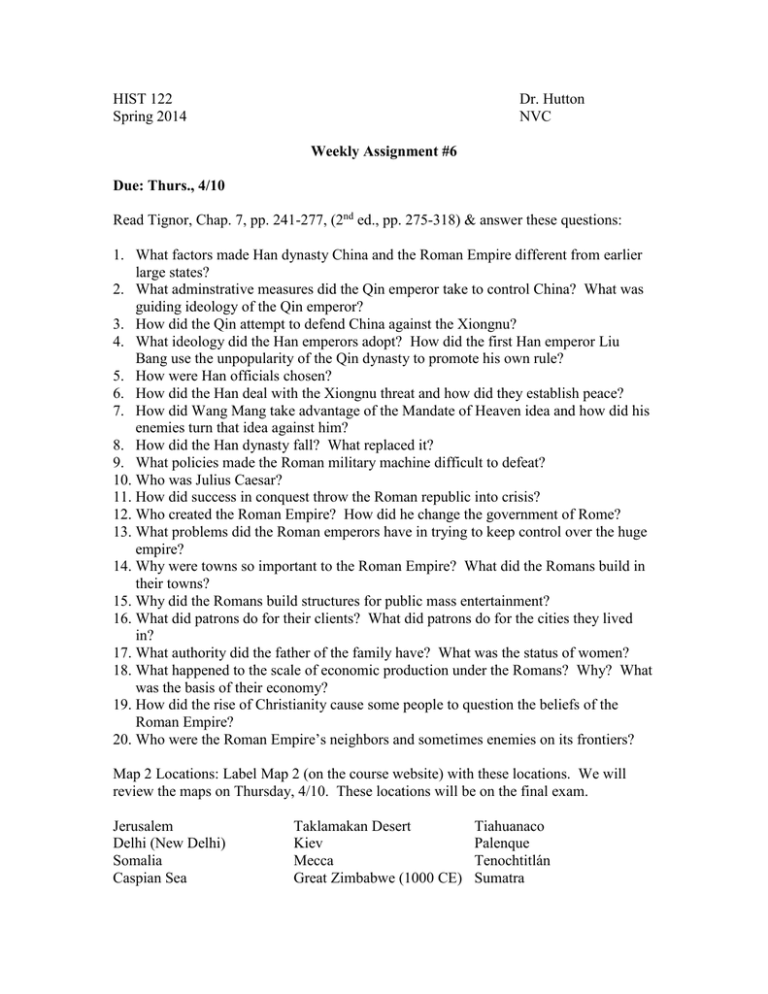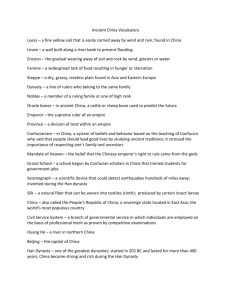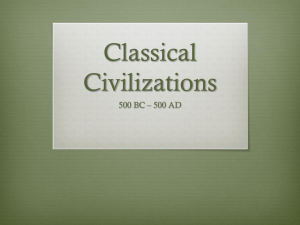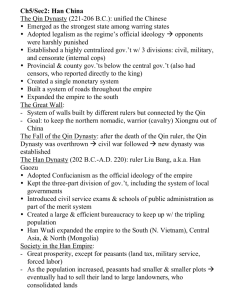Wkly Assn. 6
advertisement

HIST 122 Spring 2014 Dr. Hutton NVC Weekly Assignment #6 Due: Thurs., 4/10 Read Tignor, Chap. 7, pp. 241-277, (2nd ed., pp. 275-318) & answer these questions: 1. What factors made Han dynasty China and the Roman Empire different from earlier large states? 2. What adminstrative measures did the Qin emperor take to control China? What was guiding ideology of the Qin emperor? 3. How did the Qin attempt to defend China against the Xiongnu? 4. What ideology did the Han emperors adopt? How did the first Han emperor Liu Bang use the unpopularity of the Qin dynasty to promote his own rule? 5. How were Han officials chosen? 6. How did the Han deal with the Xiongnu threat and how did they establish peace? 7. How did Wang Mang take advantage of the Mandate of Heaven idea and how did his enemies turn that idea against him? 8. How did the Han dynasty fall? What replaced it? 9. What policies made the Roman military machine difficult to defeat? 10. Who was Julius Caesar? 11. How did success in conquest throw the Roman republic into crisis? 12. Who created the Roman Empire? How did he change the government of Rome? 13. What problems did the Roman emperors have in trying to keep control over the huge empire? 14. Why were towns so important to the Roman Empire? What did the Romans build in their towns? 15. Why did the Romans build structures for public mass entertainment? 16. What did patrons do for their clients? What did patrons do for the cities they lived in? 17. What authority did the father of the family have? What was the status of women? 18. What happened to the scale of economic production under the Romans? Why? What was the basis of their economy? 19. How did the rise of Christianity cause some people to question the beliefs of the Roman Empire? 20. Who were the Roman Empire’s neighbors and sometimes enemies on its frontiers? Map 2 Locations: Label Map 2 (on the course website) with these locations. We will review the maps on Thursday, 4/10. These locations will be on the final exam. Jerusalem Delhi (New Delhi) Somalia Caspian Sea Taklamakan Desert Kiev Mecca Great Zimbabwe (1000 CE) Tiahuanaco Palenque Tenochtitlán Sumatra Timbuktu, Mali Guangzhou Rome Constantinople Korea Baghdad Seville Prague London Paris




